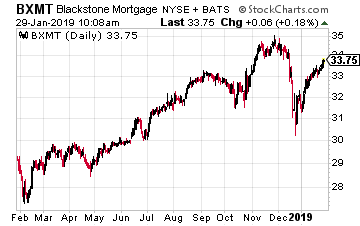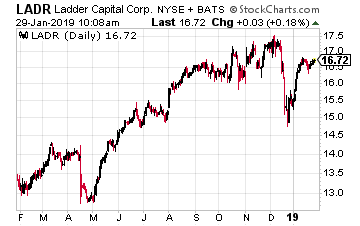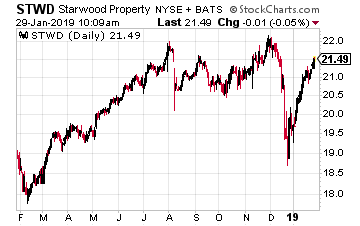Wednesday morning was all about earnings, with markets jumping on “not bad” earnings out of Apple (AAPL) Tuesday evening, and good news from Boeing (BA) Wednesday morning. And then, Wednesday afternoon was all about the Fed. Chairman Powell seemed to take the Fed, and the fear of rising interest rates, off the table as a potential stumbling block for the market with the FOMC statement and subsequent press conference.
The Fed statement declared that the Fed “will be patient as it determines…future adjustments” to interest rates. The market interpreted that as a green light on the rate front, and added to the earnings gains achieved earlier in the day. On the trade front, high level talks began again between the U.S. and China, but reports from multiple sources say it may be slow going as several in-the-weeds details on intellectual property protection and enforcement must be worked out.
The earnings onslaught continues Thursday when Tuesday Morning (TUES) and YRC Worldwide (YRCW) report before the opening bell. Revenues at trucking company YRCW are expected to rise a few percentage points over last year, with earnings coming in at $.12 per share. Investors will be looking for an update on hiring, with trucking companies across the board citing a lack of qualified drivers. Analysts are predicting a 52% year-over-year rise in Tuesday Morning earnings to $.29 a share when the company reports. The home goods retailer has fallen sharply in the past year from highs around $4 to now trade under $2 per share.
As government agencies catch up on reports not issued due to the government shutdown, the economic numbers will be coming at a rapid pace the next few days. The Challenger Job Cut Report, jobless claims, personal income, and the employment cost index will all be released tomorrow morning. Personal income is expected to have increased .4% in December, and strong consumer spending is expected to continue, ticking up .3%. The core price index, excluding food and energy, is expected to rise .2%, or 1.9% on an annual basis. Chicago PMI and new home sales are also scheduled for release Thursday.
The first day of February will start off with the employment situation numbers, followed by both the PMI and ISM manufacturing indices. Analysts are watching the manufacturing numbers very closely to see if weakness the last few months was only an aberration. The consensus ISM number for January is a tepid 54. Construction spending, consumer sentiment, and wholesale trade numbers will also be released Friday.The November construction number, originally scheduled for release January 3, is expected to show a .2% increase.
Exxon Mobil (XOM), Chevron (CVX), Merck (MRK) and Honeywell (HON) kick off February with earnings Friday morning. Both Exxon and Chevron have bounced, along with oil prices, off of the bottom touched in December. But, on a percentage basis, both large oil companies are trailing the bounce in oil itself. Analysts will be looking for commentary from each company on where they see the price of oil headed, and whether global economic weakness will continue to impact the commodity.




